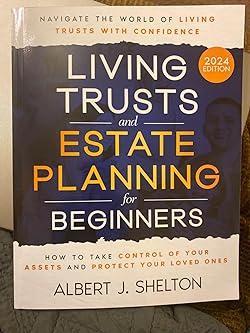Dealing with the estate of a deceased loved one can be a daunting task, particularly when it comes to transferring their property to the rightful heirs or beneficiaries. The process of transferring property from a deceased estate is a complicated legal matter that requires a thorough understanding of various laws and regulations. In this article, we will delve into the complexities of this process and offer useful guidance on how to efficiently transfer property from a deceased estate.
Grasping the Deceased Estate Property Transfer Process
Transferring property from a deceased estate can be a confusing and overwhelming task. It’s crucial to comprehend the steps involved in the deceased estate property transfer process to ensure everything is managed correctly and efficiently.
The process begins with determining whether the deceased had a will. If a will exists, the executor named in the will is tasked with managing the property transfer. In the absence of a will, the property is transferred according to the intestacy laws of the state where the deceased resided.
Essential steps in the deceased estate property transfer process:
- Collect all required documents, including the death certificate and any will or trust documents.
- Identify and evaluate the deceased’s assets, including real estate, personal property, and financial accounts.
- Settle any outstanding debts and taxes owed by the deceased.
- Distribute the remaining assets to the beneficiaries as per the will or state laws.
Navigating Legal Requirements and Probate Procedures
Transferring property from a deceased estate involves several legal requirements and probate procedures that need careful navigation. The process begins with determining if the deceased had a valid will. If a will exists, the executor named in the will oversees the property transfer.
If the deceased did not have a will, the property must go through the probate process, which can be more intricate and time-consuming. During probate, the court appoints an administrator to manage the estate, including the transfer of property to the rightful heirs.
It’s crucial to remember that each state may have different laws and regulations regarding deceased estate property transfers. Therefore, it’s essential to consult with an experienced attorney who specializes in estate planning and probate. By following the necessary steps and meeting all legal requirements, the property transfer from a deceased estate can be completed smoothly and efficiently.
Maximizing Value and Minimizing Costs in Property Transfer
When transferring property from a deceased estate, it’s essential to maximize its value and minimize costs to ensure a smooth and efficient process. This can be achieved by conducting a thorough appraisal of the property to determine its current market value. This helps in setting a fair asking price and avoiding any potential disputes among the heirs.
Another crucial aspect to consider is the transfer of ownership. Hiring a competent real estate attorney can help streamline the legal process and ensure all necessary documentation is in order. This not only saves time but also reduces the risk of costly mistakes.
Additionally, exploring different options for selling the property, such as listing it on multiple platforms or hosting an open house, can attract more potential buyers and increase the chances of getting a higher price. It’s also essential to negotiate fees with real estate agents and other involved parties to keep costs low and maximize the final profit from the property transfer. With careful planning and strategic decision-making, transferring property from a deceased estate can be a rewarding experience for all parties involved.
Seeking Professional Guidance and Executor Assistance
If you are currently navigating the process of transferring deceased estate property, professional help can make the process smoother and more efficient. The complexities involved in transferring property after a loved one has passed can be overwhelming, but having experts on your side can provide peace of mind and ensure everything is handled correctly.
Working with a professional executor can help ensure that the deceased’s wishes are carried out properly and that all legal requirements are met. These professionals have the knowledge and experience to navigate the intricacies of estate property transfer, making the process as stress-free as possible for you and your family.
With their expertise, they can assist with tasks such as identifying and valuing assets, paying debts and taxes, distributing property to beneficiaries, and managing any conflicts that may arise. By entrusting the transfer of deceased estate property to professionals, you can focus on grieving and honoring your loved one’s memory, knowing that the process is in capable hands.
Final Thoughts
As we conclude our exploration into the complex world of transferring deceased estate property, one thing is clear: the process is not always easy, but it is necessary. Navigating the legalities and emotions involved in such a transaction can be daunting, but with the right knowledge and support, it is possible to honor the wishes of the departed and find peace in the transfer of their property. We hope that the information provided has been helpful in shedding some light on this important topic. Thank you for reading, and may the journey ahead be filled with clarity and understanding.

Unlocking the Mysteries of Transferring Deceased Estate Properties
Dealing with the transfer of deceased estate properties can be a daunting and emotional process. It involves legal, logistical, and emotional challenges that can be overwhelming for anyone. However, with the right knowledge and guidance, navigating this complex process can become much more manageable.
Understanding the Legal Steps
One of the first steps in transferring deceased estate properties is understanding the legal requirements involved. This typically includes:
- Obtaining a death certificate
- Identifying and locating the will
- Applying for probate if necessary
- Notifying the relevant authorities and institutions
- Transferring the property title
| Legal Step | Description |
|---|---|
| Obtaining a death certificate | Official document confirming the deceased’s passing |
| Identifying and locating the will | Determining the deceased’s wishes regarding the property |
| Applying for probate | Legal process of validating the will and executing its instructions |
| Notifying authorities | Informing government agencies, financial institutions, and other parties of the death |
| Transferring the property title | Updating property ownership details |
Challenges in Transferring Deceased Estate Properties
Transferring deceased estate properties may face various challenges, such as:
- Disputes among beneficiaries
- Complexities of property valuation
- Tax implications of property transfers
- Legal intricacies of probate and estate administration
Benefits and Practical Tips
While transferring deceased estate properties can be challenging, there are several benefits to the process, including:
- Ensuring the deceased’s wishes are honored
- Protecting family assets and wealth
- Facilitating a smooth transition of property ownership
Some practical tips for navigating this process include:
- Seeking legal advice early on
- Communicating openly with beneficiaries
- Keeping detailed records of all transactions
- Engaging professional services for complex tasks
Case Study: The Smith Family Estate
For the Smith family, transferring their deceased parent’s estate was a challenging yet ultimately rewarding experience. By following the legal steps and seeking professional guidance, the family was able to avoid disputes and smoothly transfer the property to the intended beneficiaries.
Firsthand Experience
Many individuals find that transferring deceased estate properties can be an emotional and overwhelming process. However, with the right support and knowledge, it is possible to navigate this complex journey with confidence and integrity.
Remember, each case is unique, and seeking professional advice and guidance can make a significant difference in ensuring a successful transfer of deceased estate properties.






